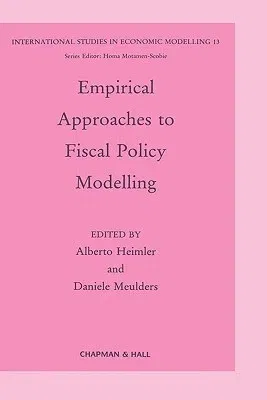Empirical Approaches to Fiscal Policy Modelling (1993)Hardcover - 1993, 31 December 1992

Qty
1
Turbo
Ships in 2 - 3 days
In Stock
Free Delivery
Cash on Delivery
15 Days
Free Returns
Secure Checkout

Part of Series
International Studies in Economic Modelling
Part of Series
Food Safety Series
Print Length
297 pages
Language
English
Publisher
Springer
Date Published
31 Dec 1992
ISBN-10
0412449900
ISBN-13
9780412449901
Description
Product Details
Book Edition:
1993
Book Format:
Hardcover
Country of Origin:
US
Date Published:
31 December 1992
Dimensions:
23.39 x
15.6 x
1.91 cm
ISBN-10:
0412449900
ISBN-13:
9780412449901
Language:
English
Location:
Dordrecht
Pages:
297
Publisher:
Weight:
616.89 gm